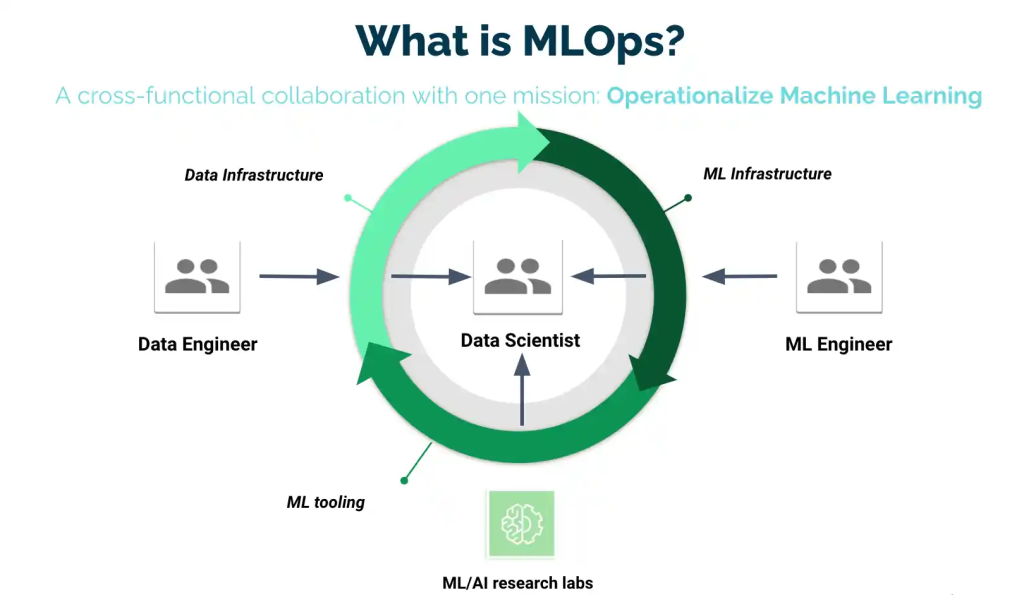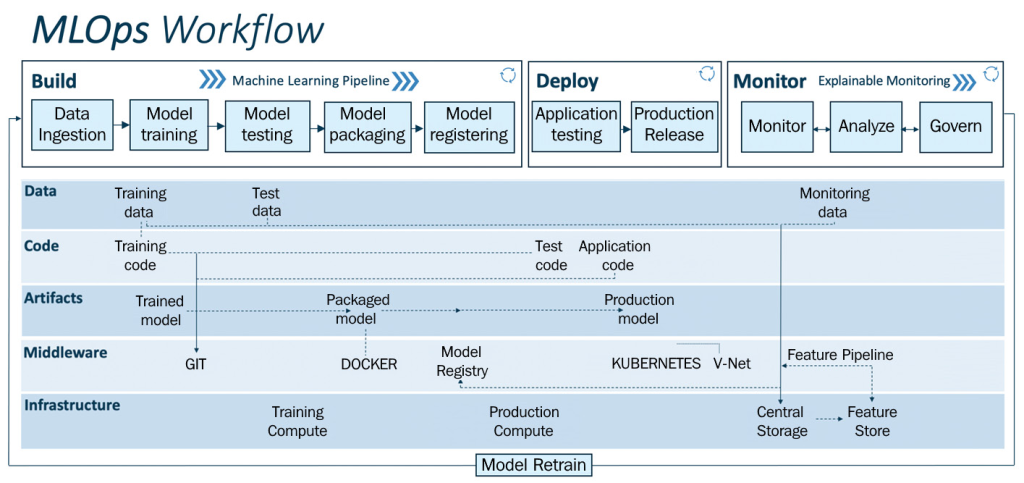
Machine Learning Operations, commonly known as MLOps, is an emerging field that deals with the development, deployment, and management of machine learning models. It is an amalgamation of machine learning and DevOps, that aims to streamline the entire machine learning lifecycle, from data preparation and model training to model deployment and monitoring.
The Importance of MLOps
With the growing demand for machine learning models, MLOps has become an essential part of the machine learning ecosystem. It helps organizations to manage and deploy their models efficiently, reducing the time-to-market and improving the overall performance of the models. MLOps also helps in managing the complexity of the machine learning workflow, ensuring that the models are scalable, reliable, and maintainable.
The MLOps Definition
MLOps is a multi-disciplinary approach that involves various technologies, tools, and practices to manage the machine learning lifecycle. It involves collaboration between data scientists, developers, and operations teams to streamline the entire workflow. The main goal of MLOps is to ensure that the machine learning models are deployed and managed in a consistent, repeatable, and scalable manner.
The MLOps Workflow
The MLOps workflow consists of several stages, including data preparation, model development, model training, model deployment, and model monitoring. Each stage requires a different set of tools and practices to ensure that the models are developed and deployed efficiently.
Data Preparation
Data preparation is a crucial stage in the machine learning workflow. It involves collecting, cleaning, and transforming the data to make it suitable for model training. MLOps provides several tools and practices for data preparation, such as data versioning, data quality checks, and data pipelines.
Model Development
Model development is the process of creating the machine learning model. It involves selecting the appropriate algorithms, feature engineering, and hyperparameter tuning. MLOps provides several tools and practices for model development, such as model versioning, code quality checks, and code pipelines.
Model Training
Model training is the process of training the machine learning model on the prepared data. It involves selecting the appropriate training algorithms, setting the hyperparameters, and evaluating the model performance. MLOps provides several tools and practices for model training, such as distributed training, model tuning, and experiment tracking.

Model Deployment
Model deployment is the process of deploying the trained machine learning model to a production environment. It involves packaging the model, creating an API, and deploying it to the production environment. MLOps provides several tools and practices for model deployment, such as containerization, continuous integration, and continuous deployment.
Model Monitoring
Model monitoring is the process of continuously monitoring the deployed machine learning model to ensure that it is performing as expected. It involves setting up monitoring metrics, logging, and alerting. MLOps provides several tools and practices for model monitoring, such as log analysis, anomaly detection, and performance monitoring.
Conclusion
MLOps is an emerging field that aims to streamline the machine learning lifecycle. It provides several tools and practices to manage the complexity of the machine learning workflow, ensuring that the models are deployed and managed efficiently. With the growing demand for machine learning models, MLOps has become an essential part of the machine learning ecosystem, and organizations that adopt MLOps are likely to have a competitive advantage in the market.